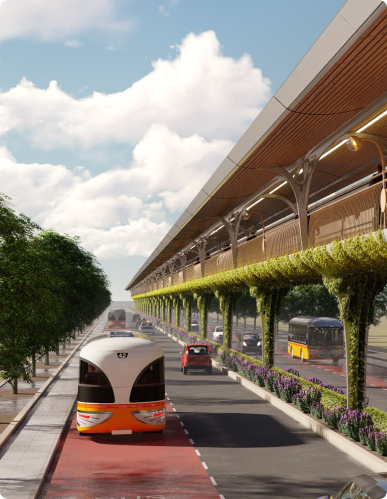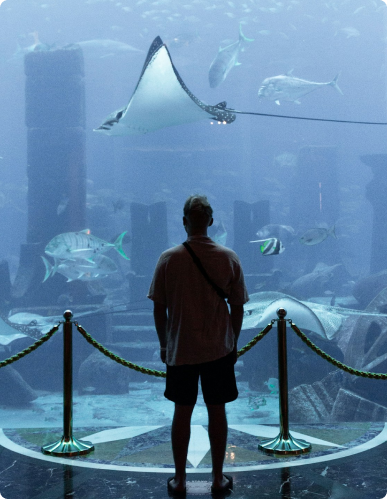PILLARS
HYDROLOGICAL CYCLE

Water Resource Management
Optimizing the use and management of various water types, including potable water, rainwater, stormwater, greywater, blackwater, and reclaimed water, to reduce environmental impact and enhance sustainability in the built environment.
Water Efficiency
Addressing the energy-intensive nature of water treatment and transportation systems to reduce overall energy consumption and improve water efficiency in building and infrastructure systems.
Wastewater Treatment and Reuse
Improving wastewater treatment technologies and policies to enhance water conservation, protect human health, and reduce ecological disruption by integrating advanced treatment and recycling methods.
HOME • RESEARCH • PILLARS • HYDROLOGIC CYCLE
Hydrologic Cycle in Action:
Interactive Water Management Model
Explore our interactive model showcasing key projects under the Hydrologic Cycle pillar. This dynamic representation highlights our efforts in optimizing water resource management, enhancing treatment technologies, and improving wastewater recycling, offering a vivid demonstration of how our research contributes to sustainable water use and environmental protection.
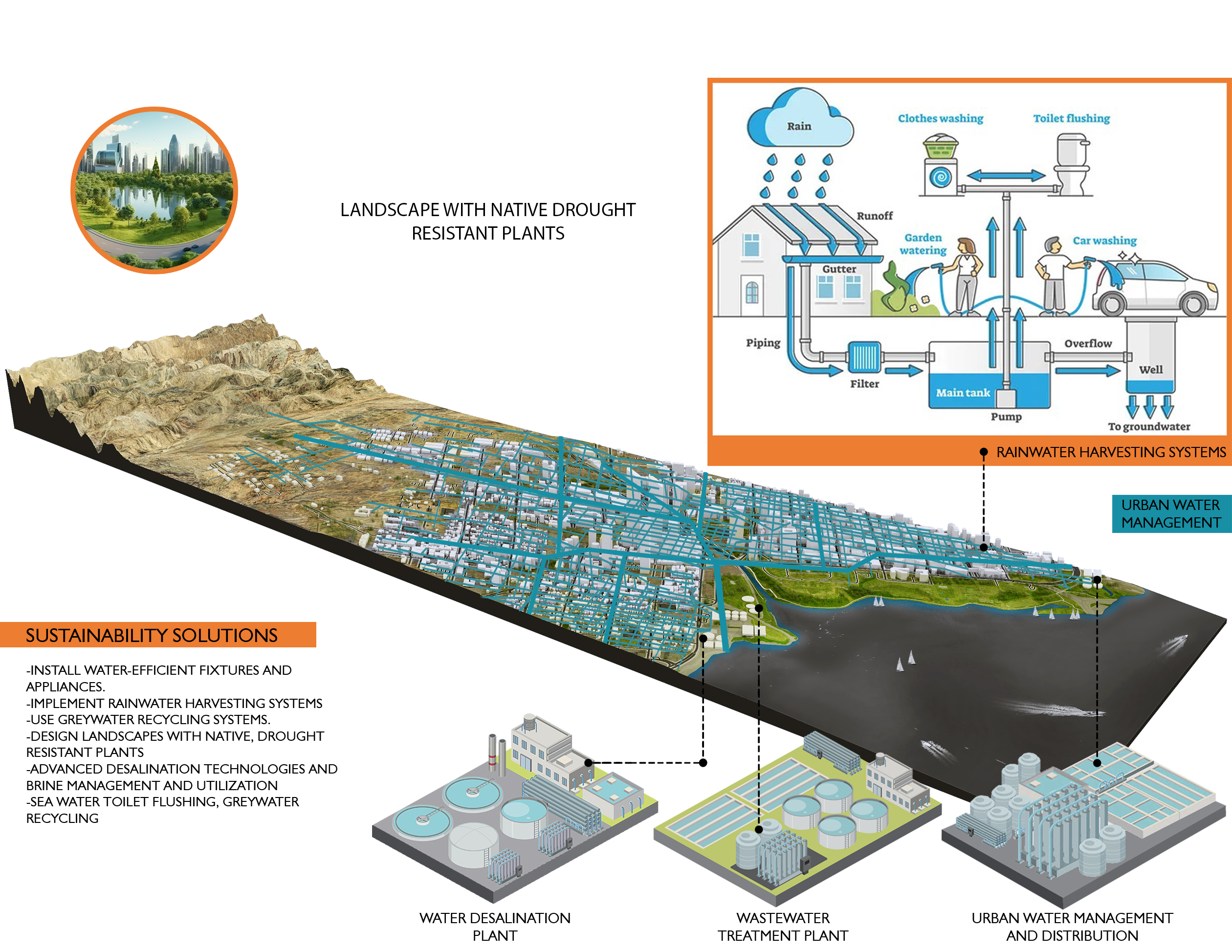
Goals
Efficient Water Use
Enhance water efficiency by reducing consumption in buildings, optimizing water treatment technologies, and integrating water-saving practices into design and operations.
Advanced Water Treatment
Improve the environmental performance of water treatment systems through innovative technologies and practices, including renewable energy integration and advanced recycling methods.
Greywater Recycling
Promote the reuse of greywater through integrated systems like living walls and green roofs, focusing on enhancing treatment efficiency and reducing water consumption.
Sustainable Wastewater Management
Develop and implement sustainable wastewater treatment solutions to minimize environmental impact and improve resource recovery and reuse.
Policy and System Dynamics
Analyze and develop effective water-efficiency policies and system dynamics approaches to support sustainable water management and energy efficiency in water systems.
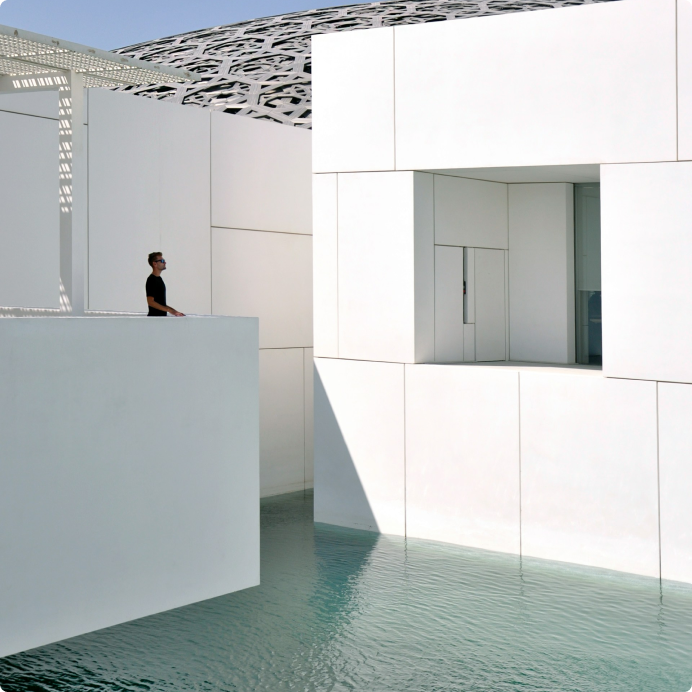
Examining the Life-Cycle Environmental Impacts of Desalination
Developed a multi-faceted, life-cycle framework to quantify the environmental and human health impacts of multi-stage flash (MSF) desalination, revealing significant variations in CO2 emissions depending on system efficiency.

Environmental Impact of Water Use in Buildings
Studied the environmental impacts of water use in buildings, comparing Doha and Miami to highlight the effects of energy-intensive water treatment processes and inform sustainable water-use policies.
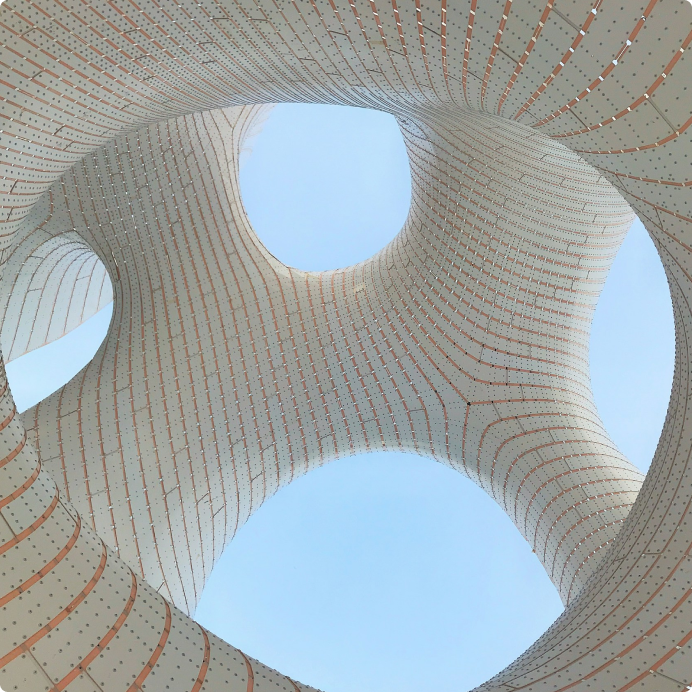
Greywater Recycling in Buildings Using Living Walls and Green Roofs
Investigated the feasibility of integrating greywater treatment in living walls and green roofs, achieving high contaminant removal rates and evaluating plant-growing media for optimal performance.

Environmental Performance of Building-Integrated Greywater Reuse Systems
Assessed the environmental performance of building-integrated greywater treatment systems compared to conventional systems, demonstrating significant CO2 reduction and benefits for policymakers.

Assessing the Impact and Dynamics of Water-Efficiency Policies
Developed a qualitative model of the water system in Qatar, exploring the effects of different water sources and policies on energy consumption and CO2 emissions, and recommending strategies for improved resilience.

Integrating Concentrated Solar Power with Seawater Desalination Technologies
Explored the integration of renewable energy with seawater desalination, modeling solar desalination plants and assessing their environmental impacts to support National Vision 2030.

Re-Think Advanced Water Management Systems Using Sea Water Toilet Flushing
Investigated the potential of seawater toilet flushing technology in the GCC region, assessing its effectiveness and trade-offs with water conservation efforts.

Development of Advanced Water Filtration Systems for Urban Use
Investigated novel water filtration technologies, including nanomaterials and advanced membrane systems, to improve water quality and reduce energy consumption in urban environments. This project aimed at enhancing filtration efficiency and sustainability.

Evaluation of Rainwater Harvesting Systems in Arid Regions
Examined the effectiveness of various rainwater harvesting systems in arid regions, focusing on collection efficiency, storage methods, and practical implementation challenges. The project aimed to identify best practices for optimizing rainwater use.

Optimization of Water-Efficient Landscaping Techniques
Developed and tested water-efficient landscaping techniques, including drought-tolerant plant species and smart irrigation systems, to reduce water consumption in urban green spaces. The project focused on creating sustainable landscaping solutions for water-scarce areas.


Achievements

The project on examining the life-cycle environmental impacts of desalination was recognized as the first comprehensive study of its kind in the GCC region and received significant media attention. It reached the final round of the 2019 Best Graduation Project for Energy Efficiency and was presented to Qatar’s prime minister and minister of interior. Awarded the 2017 Qatar Sustainability Award—Research Category by the Qatar Green Building Council (QGBC) for extensive work on the environmental impacts of water.

